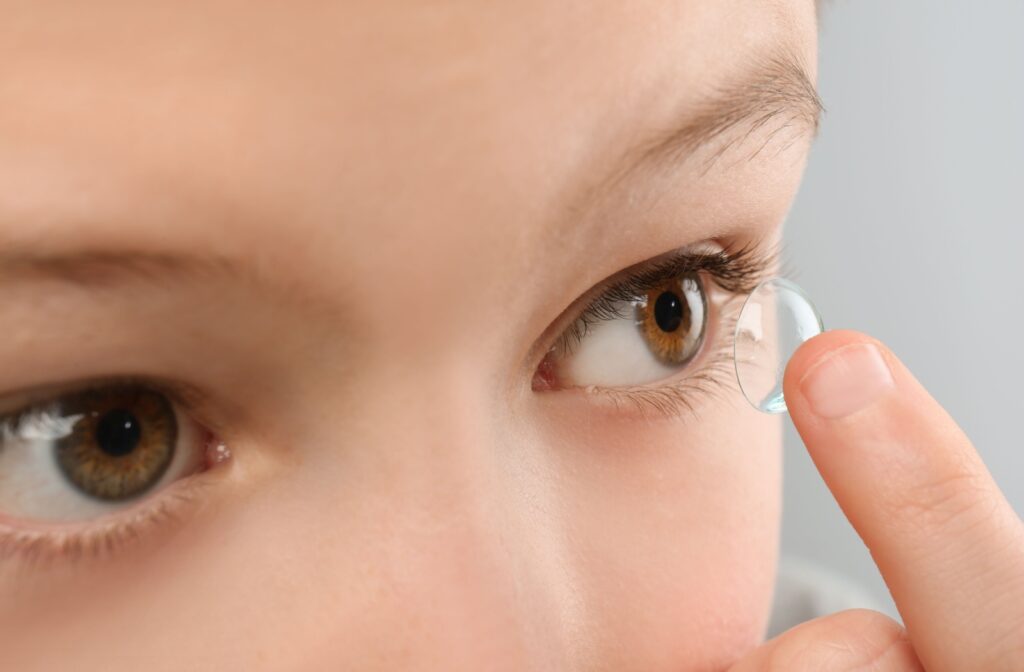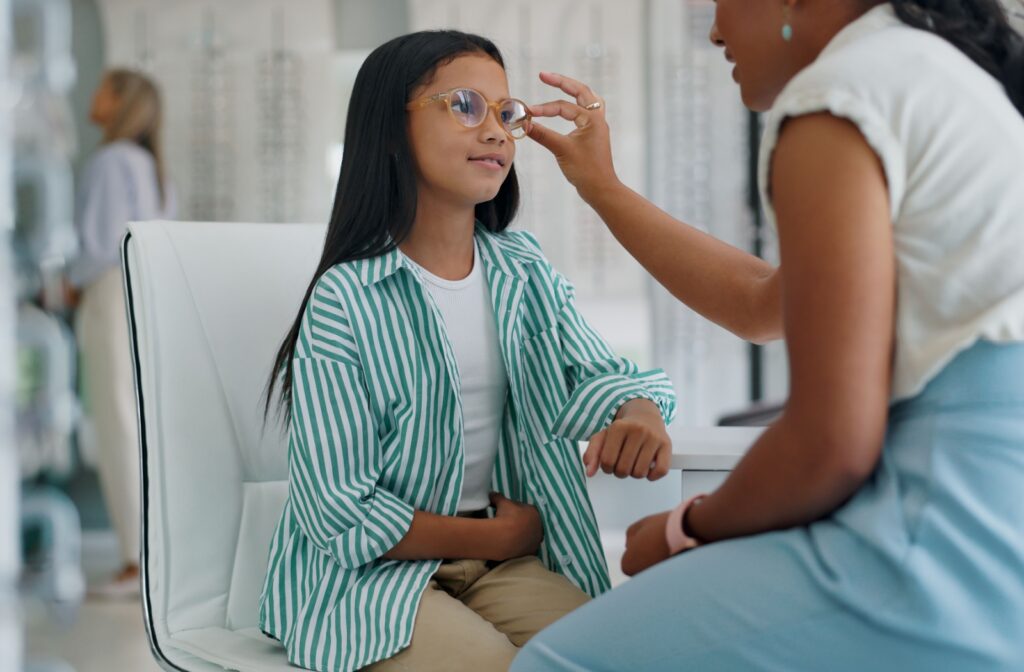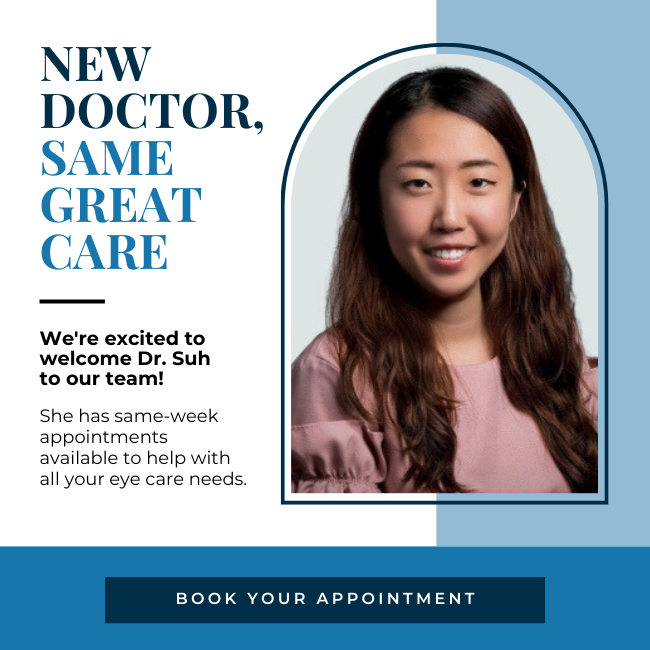Myopia, also known as nearsightedness, is a common vision condition that makes it difficult to see distant objects clearly. If you notice your child squinting at signs or the text on a screen across the room, you might be familiar with this symptom. Myopia often begins in childhood and tends to change over time, which makes regular, comprehensive eye exams a key part of long-term eye health.
Myopia eyeglasses are designed not only to help your child see clearly, but also to help slow the progression of nearsightedness.
A Simple Look at Myopia & Its Signs
Myopia occurs when the shape of the eye causes light to focus in front of the retina instead of directly on it. This optical arrangement makes far-away objects look blurry, while close-up objects remain clear. For many people, this condition can develop or change during their school years and into early adulthood.
Common Signs of Myopia
- Squinting to see distant objects with more focus
- Holding books, tablets, or phones very close to the face
- Needing to sit near the front of the class or at the cinema
- Frequent headaches or a feeling of eye strain
How Myopia Eyeglasses Work
Myopia eyeglasses are different from standard glasses because they do more than just sharpen vision. They use special lenses that help change how light focuses on the peripheral retina—the outer edges of the light-sensitive tissue at the back of the eye. This sends a signal to the eye that may help slow its rate of growth, a key factor in myopia progression.
Myopia Glasses vs. Regular Glasses
While standard single-vision glasses are effective at making distant objects clear, they don’t address the underlying progression of myopia. Myopia control eyeglasses, on the other hand, provide clear distance vision and include technology aimed at slowing down how quickly your child’s prescription changes over time.
Can Your Child Wear Myopia Glasses All The Time?
For these lenses to work as intended, consistent wear is usually recommended by your child’s eye doctor. Think of them as part of your child’s daily routine, just like any other pair of glasses. Wearing them full-time helps the eyes receive the continuous benefit of the lens technology.
More Myopia Control Options To Consider
Eyeglasses are a popular and effective choice, but they aren’t the only option available for myopia management. Depending on lifestyle, prescription, and personal preferences, other treatments may be a great fit. It’s helpful to know about all the possibilities so you can make an informed decision with your child’s optometrist.

MiSight 1 Day & Ability 1-Day Lenses
These are soft, disposable contact lenses created specifically for myopia control in children and young adults. They have different zones on the lens that correct blurry vision while also managing how light focuses on the peripheral retina to help slow eye growth. Their daily disposable design offers a fresh pair every day, which is a convenient and safe contact lens option for active children.
Atropine Eye Drops
Low-dose atropine eye drops are a therapeutic treatment used to relax the eye’s focusing mechanism, which can help slow down myopia progression. These drops don’t correct blurry vision on their own. Your child would still need to wear regular glasses or contact lenses to see clearly throughout the day.
The Value of Early Myopia Management
Addressing myopia as soon as it’s identified can have a significant positive impact on eye health. Proactive management does more than just help your child see clearly today; it’s an investment in their future. By slowing down myopia progression, there are lasting benefits for the eyes.
Fewer Prescription Changes
By slowing how quickly myopia worsens, your child may experience more stable vision from year to year. This often results in fewer updates to their prescription over time. It can also make their vision care more predictable and manageable.
Support for Long-Term Eye Health
High levels of myopia are associated with an increased chance of developing other eye conditions later in life, such as glaucoma, cataracts, and retinal detachment. Managing myopia early is a proactive step that can help reduce these long-term risks, protecting sight.
Get Professional Advice From An Optometrist In Liberty Village
Choosing the right myopia management plan is a personal decision that starts with a conversation. A thorough eye exam and a discussion about daily activities, visual demands, and preferences are the first steps. An eye care professional can help you and your child navigate the options and find a solution.
Vision is an important part of overall well-being, and our team at Dr. Rehana Manji & Associates is here to help protect it. We take the time to listen to your concerns and create a customized plan for your visual needs. We believe in providing proactive and comprehensive eye care in a kind and inclusive environment. If you’re ready to discuss different options with an optometrist in Liberty Village, we invite you to book an appointment with us. We can work together to find the right myopia management solution for your child.


